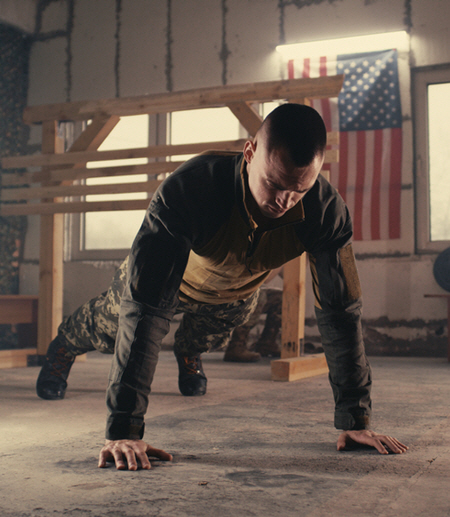 Your service extends beyond the “on duty” hours.
Your service extends beyond the “on duty” hours.
On your way home from a shift, you are in the checkout line at the gas station, and you hear from behind you – “Thank you for your service.” You immediately put on your professional face, turn around, and acknowledge the random person behind you who is eager to tell you about their third cousin who also served.
You thought you were off duty, but you know you aren’t. You endure the story, maybe even smile a little to act as expected – but you feel relieved when it’s your turn to pay so you can get out of there.
This experience seldom happens to carpenters, plumbers, or mechanics, but you seem to be part of the public domain as first responders and military members.
The job demands total commitment.
To be good at what you do, you must identify with your job and commit to your teams and missions.
Over time, you have embraced your job roles as part of who you are, and there is little separation between the worker and the self.
This kind of commitment leads to all the good things we know about first responders and those in the ilitary. But there is a dark side to this level of selfless commitment that receives less attention.
Being committed to the team and the mission puts pressure on the individual to “suck it up and carry on.” While this is very helpful in the short term, it can become problematic unless we take care of ourselves physically, mentally, spiritually, and emotionally.
 Self-care is essential but rarely applied.
Self-care is essential but rarely applied.
Let’s face it, nobody (or very few) take care of themselves as they should. I certainly don’t do as good of a job in this area as I should, and chances are you also know you could take better care of yourself.
Right about now, you may be thinking to yourself – “But who has time or energy for all this? Besides, I would know if I had a problem, but right now, I’m fine.”
The turning point in how I looked at this self-care dilemma happened when I learned about the impact of cumulative trauma and how stress works in our bodies. These two concepts were game-changers in how I prioritized and evaluated my needs in the context of my responsibilities to my job, team, and family.
As it turns out, it doesn’t take a major event to cause trauma – the impact of reoccurring smaller events that don’t get resolved will build up over time and cause very similar problems to PTSD.
Seek help before the problem gets serious.
We seek therapy when the things that worked for us in the past aren’t working anymore – in other words, when we know there is a problem. Getting help when you know you need it is good, but getting help before a pressing problem is even better when we talk about resilience to trauma and stress.
In jobs where we must face suffering, death, stress, and uncertainty, it seems unreasonable to expect someone to go through a career without either dulling their emotions to prevent being impacted by these experiences or risk being emotionally overwhelmed.
Some choose to be vulnerable and stay in touch with their feelings – they feel everything. Vulnerability helps to process emotions as they come. Still, it can be a challenging and overwhelming experience (it is also tough to do because it can seem to others in your team like you can’t handle the job).
Most, however, choose a different way to handle their emotions – they dull or ignore them (“compartmentalize”), which works well for getting the job done but carries the high price of having a lot of unprocessed stuff built up. As these unprocessed emotions stack up, it becomes more challenging to be vulnerable enough to get close with people outside your team, which translates to increased rates of relationship problems.
 Being prepared is the best approach.
Being prepared is the best approach.
Wouldn’t it be nice to have strategies and habits in place that either prevent or reduce the chances of developing a problem? Fire and police departments across the country and the military are beginning to look at these preventative measures as a comprehensive approach to better health care. The results show that it is wise to invest in this direction.
Recent research helped develop the Safe and Sound Protocol based on the Polyvagal Theory. This approach is an efficient and actionable way to understand and control your emotional processes.
This approach provides the tools and skills to shift the control of your emotional states inward. Rather than reacting to what comes your way and being at the mercy of your environment, you have the preparation necessary to gain control. Once you learn these skills, you will have more options to manage your emotions, so you won’t have to pick between ignoring your feelings or being overwhelmed.
Whether you are at a point where you know you would like to resolve some personal or relationship issues or would like to learn about ways to develop the habits and strategies that will create a better long-term balance in your life, I’m here for you.
Reach out today by calling (912) 777-9842.
I will help you find solutions that work for you, your family, and your professional commitments.

